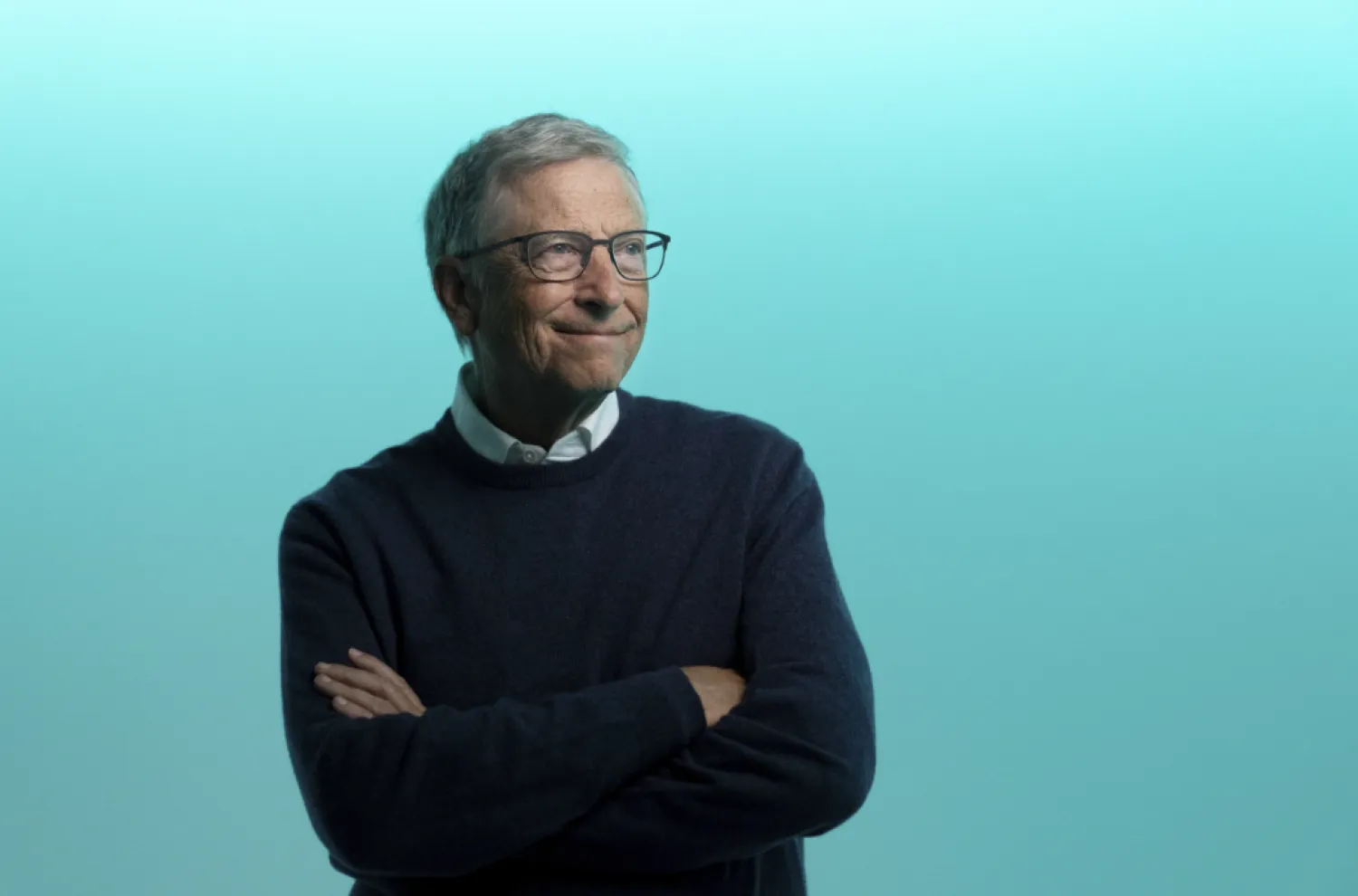In his new memoir, “Source Code,” Bill Gates takes readers on a reflective journey through his early life, from his formative years in Seattle to his historic contributions as a Microsoft co-founder. This latest work not only delves into the intricacies of his childhood but also provides insights into the emerging world of AI technology, a topic that Gates often finds both exciting and intimidating. Drawing from his experiences at Harvard University, he emphasizes the importance of curiosity and innovation as he recounts his journey from student to software mogul. Gates shares anecdotes that highlight how this passion for learning and exploration has shaped his perspective on technology’s role in society today. As he balances nostalgia with forward-looking insights, “Source Code” serves as both a biography and a reflection on the challenges and opportunities presented by a rapidly evolving digital landscape.
In his latest autobiographical work, Gates offers a window into his past, detailing the influence of his upbringing and pivotal decisions that led him to become an iconic figure in the tech industry. This memoir also sheds light on significant themes such as the role of artificial intelligence in today’s world and its implications for future generations. Renowned for co-founding one of the largest software companies in history, he uses his experiences to articulate the pivotal lessons learned during his time at Harvard. The narrative accentuates the value of inquisitiveness and the drive to take intellectual risks, elements that have been crucial in his life and career. Through anecdotes and reflections, Gates not only retells his own story but also encourages readers to cultivate a mindset of exploration and resilience in the face of technological advancements.
Bill Gates’ New Memoir: Insights into his Journey
In his new memoir, “Source Code,” Bill Gates shares an intimate portrait of his life, from his early days in suburban Seattle to becoming a global tech icon. The memoir provides a compelling narrative of his experiences growing up, showcasing the importance of curiosity and experimentation in shaping his path. Gates reflects on the dynamic relationship he had with his parents, especially his mother, who encouraged his intellectual growth and allowed him to explore the world of computing. Through anecdotes and insights, he illustrates how this nurturing environment fueled his passion for technology and set the stage for founding Microsoft.
Gates’ narrative in “Source Code” also serves as a lesson in resilience and adaptation. As a young student at Harvard, he was met with rigorous academic challenges that humbled him, despite his natural talents in mathematics. This humility pushed him to think critically about his capabilities and the importance of surrounding himself with individuals who possessed different skills. Consequently, Gates’ experience at Harvard not only honed his intellect but also ignited his drive towards innovative solutions in technology, a theme that resonates throughout his memoir.
The Role of Curiosity in Innovation
One of the central themes in Gates’ memoir is the importance of curiosity in the innovation process. Gates believes that fostering a curious mindset is crucial for success, particularly in rapidly evolving fields like technology. He urges readers, especially young minds, to embrace exploration, take risks, and learn from failures. This spirit of curiosity not only led Gates to challenge academic boundaries during his Harvard days but also contributed significantly to the groundbreaking advancements achieved at Microsoft.
Curiosity, according to Gates, is the driving force behind creativity and problem-solving. This principle is particularly relevant as he discusses the current landscape of AI technology. As AI continues to advance, Gates emphasizes the need for inquisitiveness among developers and users alike, advocating for a balanced approach to technology that prioritizes ethical considerations alongside innovation. By nurturing curiosity, individuals can leverage AI’s potential responsibly while addressing societal challenges.
From Harvard to Microsoft: A Journey into Tech Leadership
Bill Gates’ decision to drop out of Harvard and establish Microsoft is a pivotal moment explored in his memoir, where he recounts the exhilarating journey of transitioning from a student to a tech entrepreneur. Gates was inspired by the possibilities of personal computing long before it became mainstream, exemplifying the foresight that defines many successful innovators. His collaboration with Paul Allen marked the beginning of a revolution that reshaped the tech industry and set the groundwork for a future dominated by software solutions.
The transition from academia to the fast-paced world of technology posed significant challenges, yet Gates remained undeterred. Throughout his career, he continuously sought knowledge, emphasizing that learning does not stop with formal education. This mindset is reflected in Gates’ enduring commitment to education and philanthropy, advocating for the importance of curiosity and lifelong learning in driving societal progress and addressing global issues.
Tech Ethics: Navigating the Future of AI
Gates addresses the ethical implications of emerging AI technologies in his memoir, particularly reflecting on the tension between innovation and responsibility. He acknowledges the ‘scary’ aspects of AI’s rapid progression and emphasizes that it is essential to direct this technology toward positive societal impact. Gates highlights the role of tech leaders in fostering a dialogue around ethical usage, ensuring that advancements in AI serve humanity rather than detract from it.
In his discussions, Gates advocates for a collaborative approach in addressing potential risks associated with AI technology. He encourages future tech leaders to engage in transparent conversations about the implications of their innovations while ensuring that the technological landscape is navigated thoughtfully. This balance of optimism and caution is crucial as AI continues to profoundly influence industries, economies, and personal lives.
Harvard’s Influence on Gates’ Thinking
Gates’ time at Harvard University played a critical role in shaping his worldview and intellectual pursuits. Despite his inclination towards dropping out, the rigorous academic environment challenged him to think critically and engage deeply with complex mathematical concepts. This experience not only expanded his understanding of technology but also underscored the importance of collaboration, as he surrounded himself with peers who possessed diverse talents, ultimately influencing his approach to leadership.
The lessons learned during his Harvard years resonate through Gates’ subsequent endeavors. He recalls the profound humility he experienced when faced with brilliant minds during advanced calculus, reiterating that true expertise often comes with recognizing one’s limitations. Such reflections highlight the foundation that Harvard provided him—not just in terms of knowledge but also in cultivating a mindset geared towards innovation and curiosity that has guided his career.
The Legacy of Microsoft and Future Endeavors
In “Source Code,” Gates reflects on the legacy of Microsoft and its profound impact on technology. Co-founding the company represented not just business success but a catalyst for the digital revolution. Gates recounts significant milestones, such as the launch of Windows and Office, which transformed both personal and professional computing. His vision of accessible software empowered individuals and organizations alike, and it continues to influence modern technology practices.
However, Gates does not rest on his laurels; he remains actively engaged in addressing global challenges through philanthropy and innovation. His venture beyond Microsoft signifies a commitment to leveraging technology for societal good, particularly in health and education. This evolution allows Gates to continue making meaningful contributions, demonstrating that true leadership transcends business success, extending into personal responsibility and global impact.
Nostalgia and the Ethics of Technology
During his recent event, Gates shared a sense of nostalgia for earlier technological optimisms, contrasting it with current attitudes towards innovation. He reminisced about how the launch of products like Microsoft Word was met with enthusiasm rather than apprehension. This nostalgic view highlights a shift in how society perceives the implications of new technologies, showcasing Gates’ desire to return to a mindset that embraces innovation while promoting responsible use.
Gates reflects on the evolving relationship between society and technology. His acknowledgment of concerns regarding technology’s impact on youth highlights the need for a cohesive approach to tech use that includes teaching discernment in digital consumption. Balancing enthusiasm for innovation with prudent discussions about ethics is critical for two reasons: it encourages ongoing development while mitigating risks, and it prepares the next generation to navigate a tech-driven world with care and responsibility.
The Future of Learning in a Tech-Driven World
In his memoir, Gates speaks to the urgency of adapting educational paradigms to meet the needs of a rapidly changing world. He emphasizes the role of curiosity as a cornerstone of effective learning, advocating for educational frameworks that inspire students to explore diverse interests and engage with technology thoughtfully. This forward-thinking approach aligns with Gates’ belief that creativity and innovation can coexist with structured learning environments.
As we advance further into the era of AI and automation, Gates highlights the importance of teaching critical thinking and problem-solving skills. He envisions a future where education is not limited to traditional methods but expands to include experiential learning opportunities that leverage modern technology. By doing so, Gates believes that we can equip future generations with the tools necessary for success in various fields, ultimately shaping a society that values both knowledge and ethical engagement with technology.
Bill Gates: A Pioneer of Tech Philanthropy
Gates’ journey is not solely defined by his achievements in technology but also by his philanthropic initiatives, particularly after stepping down from Microsoft. He founded the Bill & Melinda Gates Foundation, which focuses on solving global issues in health, education, and more. His commitment to philanthropy demonstrates a desire to use his wealth and influence for positive change, emphasizing the necessity of addressing inequalities in a tech-driven world.
Through various initiatives, Gates communicates the message that technology and philanthropy can work hand in hand. By funding innovative projects and supporting education for underprivileged students, he illustrates how curiosity-driven solutions can lead to meaningful contributions towards societal well-being. His narrative in “Source Code” encourages readers not only to aspire for greatness but also to leverage their success for the greater good.
Frequently Asked Questions
What insights does Bill Gates provide in his new memoir, ‘Source Code’?
In ‘Source Code’, Bill Gates shares personal reflections on his early life, the founding of Microsoft, and the importance of curiosity. He emphasizes how nurturing an inquisitive mindset can lead to innovation and success, making the memoir a valuable read for those interested in the intersection of technology and personal growth.
How does ‘Source Code’ explore Bill Gates’ experience at Harvard University?
‘Source Code’ recounts Bill Gates’ time at Harvard University, highlighting how he navigated the challenging Math 55A and 55B courses. Through these experiences, Gates acknowledges the importance of humility and learning from peers, which shaped his understanding of mathematics and innovation.
What themes about AI technology insights are discussed in Bill Gates’ new memoir?
Bill Gates addresses AI technology insights in ‘Source Code’, expressing optimism about AI’s potential to solve pressing global challenges, such as medicine and education. However, he also acknowledges the concerns surrounding the swift development of AI and its implications for society.
How does Bill Gates’ memoir reflect on his curiosity and approach to learning?
In ‘Source Code’, Bill Gates emphasizes the significance of curiosity and taking risks in learning. He shares his personal journey, illustrating how a curiosity-driven mindset not only fueled his successful career but also influenced his philanthropic endeavors.
What does Bill Gates reveal about his relationship with his parents in ‘Source Code’?
Bill Gates reflects on the ‘intense’ relationship he had with his achievement-oriented mother in ‘Source Code’. He credits her for instilling a love of learning in him, which allowed him to pursue his interests in technology and entrepreneurship freely.
What impact did dropping out of college have on Bill Gates, as discussed in ‘Source Code’?
In ‘Source Code’, Bill Gates discusses dropping out of Harvard to start Microsoft. He describes this pivotal decision as a risk that ultimately paid off, showcasing his belief in following one’s passions and the necessity of seizing opportunities in the evolving tech landscape.
How does Bill Gates view the ethics of technology in his memoir ‘Source Code’?
In ‘Source Code’, Bill Gates addresses the ethical considerations of technology, particularly the unintended uses of innovations like Microsoft Word. He reflects on the balance between technological advancement and its societal impact, advocating for a responsible approach to development.
What nostalgic feelings does Bill Gates express about technology in ‘Source Code’?
In ‘Source Code’, Bill Gates expresses nostalgia for the early days of technology, recalling a time of optimism and innovation at Microsoft. He contrasts this with current concerns over technology’s influence on young people’s lives, advocating for a balanced approach to tech consumption.
| Key Points |
|---|
| Bill Gates visits Harvard to discuss his new memoir, ‘Source Code’. The memoir covers his childhood, founding Microsoft, and his views on education and curiosity. |
| Gates reflects on his school experiences, particularly his relationship with math and his childhood. He mentions how he was a challenging student and highlights the influence of his parents. |
| He shares stories of his journey at Harvard, including dropping out to start Microsoft after being inspired by a personal computer he saw in a magazine. |
| Gates expresses concerns about the current state of technology, particularly how it affects young people, while also advocating for innovation and curiosity in education. |
| He discusses the potential benefits and risks of artificial intelligence, acknowledging it as a ‘little scary’ despite its positive applications. |
Summary
Bill Gates’ new memoir, ‘Source Code’, offers an intimate look into the life of one of the most influential figures in technology and philanthropy. Through a mix of personal anecdotes and reflections on his journey from a curious student to co-founding Microsoft, Gates illustrates the importance of fostering curiosity and embracing innovation in education. As he navigates the complexities of technology, particularly the rise of AI, he encourages readers to balance optimism with caution, making this memoir not only a recounting of his life but also a thoughtful commentary on our digital future.



